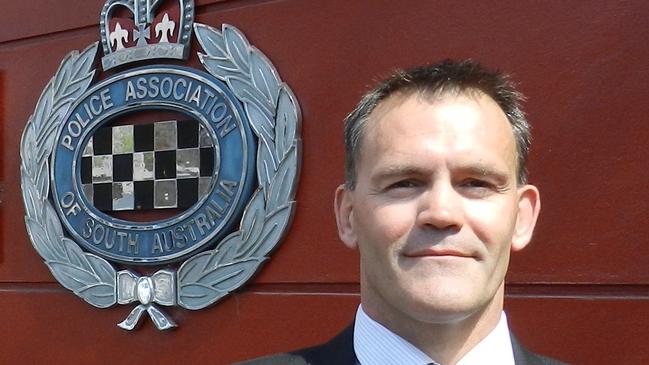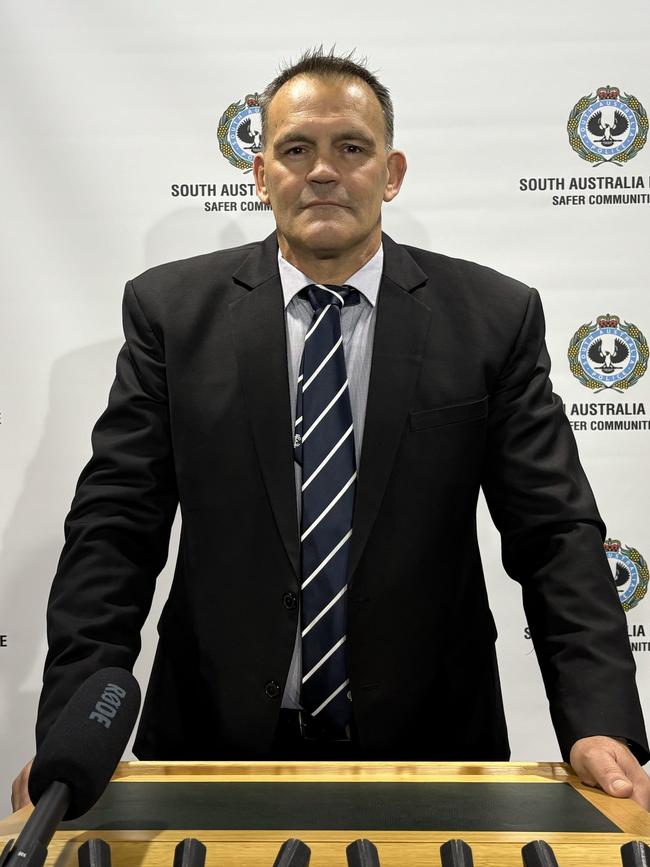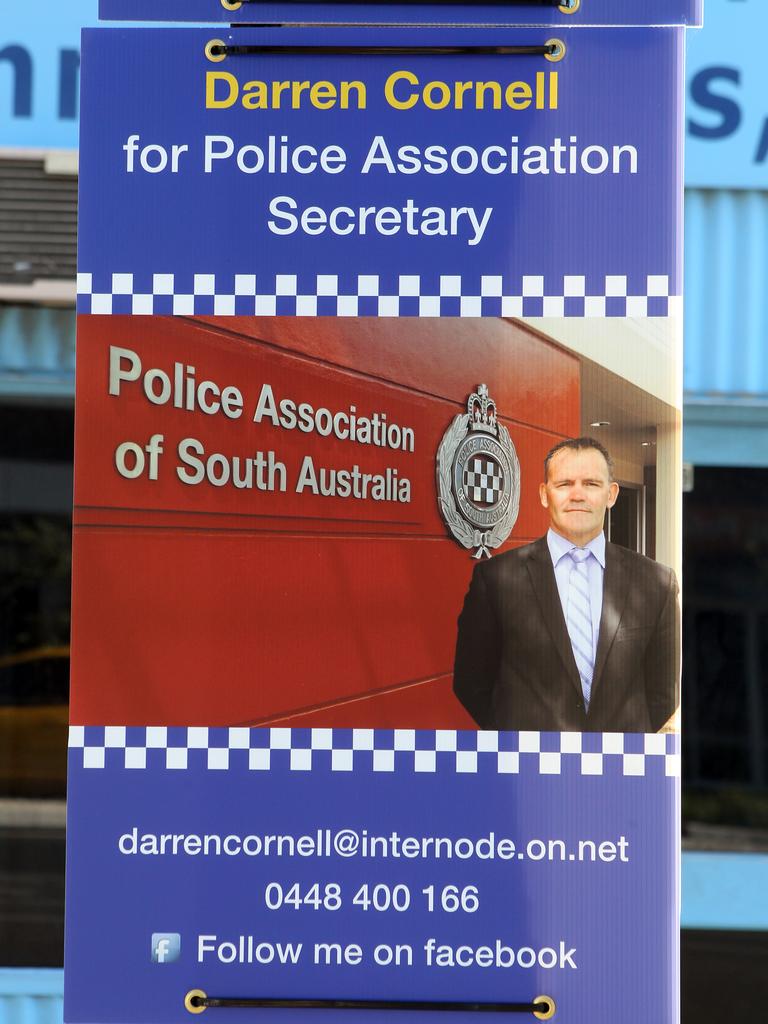Police Association of SA presidency candidate Chief Inspector Darren Cornell resigned from union during internal misconduct investigation
A candidate for the police union’s top job resigned from his prior role with the Police Association during a probe into misconduct claims that cost a colleague her job.

Police & Courts
Don't miss out on the headlines from Police & Courts. Followed categories will be added to My News.
A chief inspector running for the Police Association of South Australia presidency resigned from the union while under investigation for an alleged code of conduct breach that caused an executive assistant to lose her job.
Chief Inspector Darren Cornell resigned from PASA in 2013 during an internal union investigation probing allegations he had conspired with a female colleague to access confidential records of committee of management meeting discussions during his campaign running for union secretary.
Chief Inspector Cornell was interviewed several times as part of the investigation before he tendered his resignation. Neither Mr Cornell nor the executive assistant were accused of any criminal wrongdoing.

He left before the investigation was finalised.
The executive assistant was investigated and sacked over the confidentiality breach.
On his campaign website, Chief Inspector Cornell describes himself as “transparent” and lists his number one priority as “transparency of the Police Association”.
But at the time of his departure, Chief Inspector Cornell told members he was leaving the union to further his policing career.
According to his website, Chief Inspector Cornell “returned to SAPOL to expand his knowledge and development towards becoming a Commissioned Officer”.
The website states Chief Inspector Cornell received “significant training, mentoring and experience” at state and federal levels during his four years with the union.
“The knowledge skills and experience cannot be underestimated or matched,” the website states.
Chief Inspector Cornell said he was approved by SA Police to take four years of unpaid leave to work for the union, which he left after he was unsuccessful in his bid for secretary.
“I was very fortunate to work within the Police Association, I obtained skills and experience which very few people are able to experience,” he said.

Chief Inspector Cornell said allegations of misconduct were “not reflective of my time within the Police Association”.
“I was able to obtain a significant skillset and invaluable insight into the industrial relations arena,” he said.
“This can only be a positive for my presidential campaign.
“During my policing career (including the Police Association) I have been subjected to allegations as are many police officers.
“I have never had an adverse finding against me.”
Chief Inspector Cornell denied any knowledge of the executive assistant losing her job.
Chief Inspector Cornell was in 2021 a key part of a splinter group of disgruntled former and current union members who failed to have president Mark Carroll stood down during an independent investigation into unsubstantiated allegations made by former deputy president Samantha Strange.
The independent investigation, later backed by a second independent legal review, did not substantiate Ms Strange’s claims against Mr Carroll, who at the time warned the comments were defamatory and subject to legal action.
A special general meeting called to have Mr Carroll stood down was not validated because less than half of the members required for a quorum attended.
The splinter group also unsuccessfully petitioned for a vote of no confidence in the union’s entire committee of management for its handling of the allegations, which were never substantiated and subject to legal action.
Should it have been successful and the motion carried, the union’s entire management would have been up-ended and thrown the association into unprecedented turmoil, sources said.
But less than 10 members attended the meeting.
Chief Inspector Cornell said he attended the first meeting to listen to issues raised as a result of Ms Strange’s resignation.
“As all members within the Police Association, I had a constitutional right to attend,” he said.





